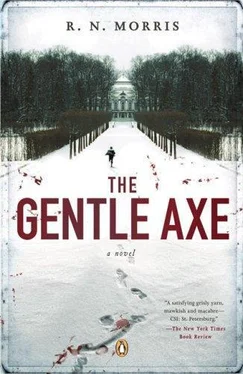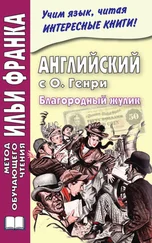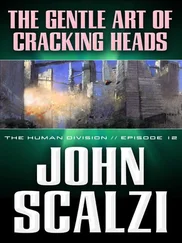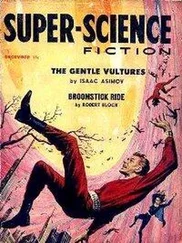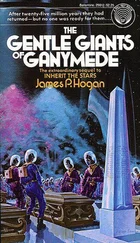R. Morris - The Gentle Axe
Здесь есть возможность читать онлайн «R. Morris - The Gentle Axe» весь текст электронной книги совершенно бесплатно (целиком полную версию без сокращений). В некоторых случаях можно слушать аудио, скачать через торрент в формате fb2 и присутствует краткое содержание. Год выпуска: 2008, ISBN: 2008, Издательство: Penguin Books, Жанр: Исторический детектив, на английском языке. Описание произведения, (предисловие) а так же отзывы посетителей доступны на портале библиотеки ЛибКат.
- Название:The Gentle Axe
- Автор:
- Издательство:Penguin Books
- Жанр:
- Год:2008
- ISBN:9780143113263
- Рейтинг книги:5 / 5. Голосов: 1
-
Избранное:Добавить в избранное
- Отзывы:
-
Ваша оценка:
- 100
- 1
- 2
- 3
- 4
- 5
The Gentle Axe: краткое содержание, описание и аннотация
Предлагаем к чтению аннотацию, описание, краткое содержание или предисловие (зависит от того, что написал сам автор книги «The Gentle Axe»). Если вы не нашли необходимую информацию о книге — напишите в комментариях, мы постараемся отыскать её.
The Gentle Axe — читать онлайн бесплатно полную книгу (весь текст) целиком
Ниже представлен текст книги, разбитый по страницам. Система сохранения места последней прочитанной страницы, позволяет с удобством читать онлайн бесплатно книгу «The Gentle Axe», без необходимости каждый раз заново искать на чём Вы остановились. Поставьте закладку, и сможете в любой момент перейти на страницу, на которой закончили чтение.
Интервал:
Закладка:
Virginsky acknowledged the superstitious dread that had prevented him from looking into the man’s face. He was remembering a story he had once read about a man haunted by his double.
He let the tramp disappear around the bend in the path before starting his steps again.
Seventy-nine, eighty, eighty-one…
When he turned the corner the tramp was not in view.
Eighty-two…
The canal path brought him into the Nevsky Prospect alongside the Kazan Cathedral. The width and prosperity of the street intimidated him. He felt that the wind that purged it would destroy him, deliberately. Only the affluent, layered in furs, could venture into it.
Virginsky decided to shelter in the colonnade of the Kazan Cathedral. Though he would describe himself as an atheist, he had always liked this place. The semicircular sweep of the colonnade was vaguely reminiscent of arms held open for embrace. He responded to the grandeur of the design without being awed by it. It seemed to contain within it something welcoming and benign. He believed the humanity of the peasant stonemason shone through.
The wind had blown between the columns a light scattering of snow dust, which every now and then it moved around or added to. Looking at the palimpsests of footprints on the paving stones, Virginsky’s mind went blank. He was suddenly unable to count his own steps.
His humiliation came back to him and the dim memory of a resolve to end it. He remembered a plan, conceived in a police cell or possibly even before then. He seemed to spend his life reaching the same resolve, drawing up the same plan. Would he ever find the courage to put it into action?
But already he had forgotten what the plan was and would have to wait for it to come back to him. In the meantime…
One, two, three…
He set off again, walking the colonnade.
It was not that he was simpleminded. It was just that he was hungry. If only he could find a solution to that, the hunger, and the humiliation that came with it. But that was it, he suddenly remembered. That was why he was here in the Nevsky Prospect. To bring an end to the hunger.
Four, five, six…
He noticed that he was following one particular set of footprints. These seemed to be both the most recent and the most indistinct, lacking any clear heel or toe definition. At times they smudged into long lines, as if the walker had been dragging one foot or the other. Virginsky looked up but saw no one. All the same, he did not believe he had the colonnade to himself. He sensed another presence, concealed behind the shifting blinds of the columns.
Seven, eight, nine…
Then he saw the man-the same tramp from beside the canal-darting across the aisle between two columns.
He moves quickly, thought Virginsky. Yet to look at him, he must be in a worse state than I.
And it was not that Virginsky had found the courage to move away from the Kazan Cathedral. It was just that he could no longer bear the tramp’s proximity. His terror had crystallized. He was certain now that if he came face to face with this other, he would see his own features staring back at him.
He stepped out into the Nevsky Prospect, his gaze fixed on a square three-story building on the other side of the street. Fortunately the road was clear of traffic. But the wind shrieked gleefully as it battered into him.
IWISH TOsee Osip Maximovich.”
Vadim Vasilyevich’s cold, gray eyes looked down on the bedraggled individual who had just presented himself at the offices of Athene Publishing. His small mouth drew itself into a tight pucker of distaste. “And who are you?” The question was strangled by the man’s forced baritone.
“You know me. You’ve seen me at the house of Anna Alexandrovna. I am Pavel Pavlovich Virginsky.”
“What is your business here?”
“I wish to see Osip Maximovich.”
“He’s a very busy man. You can’t just walk in here demanding to see whomsoever you like.”
“Tell him I was a friend of Goryanchikov’s.”
“You will have to do better than that.”
“I am a writer. Well, a student. But I have written…essays.”
“Petersburg is full of writers.”
“Goryanchikov said that I could get work here. Goryanchikov said he would vouch for me.”
“Unfortunately, Goryanchikov is dead. He can’t vouch for anyone.”
“Please. Let me see Osip Maximovich. Goryanchikov told me-”
“Goryanchikov told you what?” A second, higher voice, leavened with relaxed good humor, took over the interrogation. Osip Maximovich himself had just come into the room. A twinkling flash danced across his spectacle lenses.
“About the work he was doing for you. The translation. The Proudhon. We talked about it.”
Osip Maximovich took off his spectacles. His face was serious as he assessed Virginsky with his penetrating black eyes. “You talked about Proudhon?”
“Yes.”
Osip Maximovich replaced his spectacles. The optical effect was to retract his eyes. “And you think that qualifies you to take over Stepan Sergeyevich’s work?” He had seemed to be on the verge of asking something else entirely, but the thick lenses masked his intentions.
“We talked about other things.”
“What other things?”
“Philosophy in general. Philosophers. Hegel.”
Osip Maximovich pursed his lips as if impressed. “You talked of Hegel.”
“Please. I want to work for you. Give me a section to do. If you’re happy with the result, hire me to complete it. I will work for half what you were paying Goryanchikov.”
“Is that because you are only half as good as him?” quipped Vadim Vasilyevich.
“I’m not greedy. Just hungry.”
Osip Maximovich’s smile expressed his approval of the answer. He transmitted some of his beaming pleasure toward Vadim Vasilyevich.
“There is no point,” said Vadim Vasilyevich bluntly. “The police have confiscated the text of Goryanchikov’s translation. We don’t know how far he got.”
“I know he didn’t finish it,” said Virginsky.
A sudden change came over Osip Maximovich’s mood. He sighed despondently. “Poor Stepan Sergeyevich. His death was a terrible blow to us.” He smiled forlornly to Virginsky. “He was like a son to me.”
Virginsky frowned. “I wonder why people say that. It doesn’t mean very much.”
“I…miss him.”
Virginsky said nothing.
“Did he ever, I wonder, speak of me…warmly?” pressed Osip Maximovich.
“Would it make any difference to you to know he hated you?”
“He said that?”
“No. But those are the feelings I have toward my own father. If he was like a son to you, you should have expected the same from him.”
Osip Maximovich laughed abruptly. “I think you will make a very good translator of philosophy. We will try you out with the final section of Proudhon. If you make an adequate job of that, you can have the section before the last. And so on in reverse. With any luck, when we get Goryanchikov’s version back from the police, the two will meet in the middle.”
“Madness,” said Vadim Vasilyevich, throwing up his arms.
“Now, now, Vadim Vasilyevich. We’ll find out soon enough if he’s up to the task. Do you accept the commission, my friend?”
“What about money? We haven’t agreed on the money.”
“That depends on the quality of the work. If it isn’t up to scratch, I’m afraid we won’t be able to pay you anything.”
“But I need some money now.” Desperation made Virginsky’s tone aggressive. He quickly softened it. “For materials. Paper…pens…ink…candles.” After a moment Virginsky added, “Et cetera.”
“Et cetera? What et cetera can there be?” smiled Osip Maximovich.
Читать дальшеИнтервал:
Закладка:
Похожие книги на «The Gentle Axe»
Представляем Вашему вниманию похожие книги на «The Gentle Axe» списком для выбора. Мы отобрали схожую по названию и смыслу литературу в надежде предоставить читателям больше вариантов отыскать новые, интересные, ещё непрочитанные произведения.
Обсуждение, отзывы о книге «The Gentle Axe» и просто собственные мнения читателей. Оставьте ваши комментарии, напишите, что Вы думаете о произведении, его смысле или главных героях. Укажите что конкретно понравилось, а что нет, и почему Вы так считаете.
